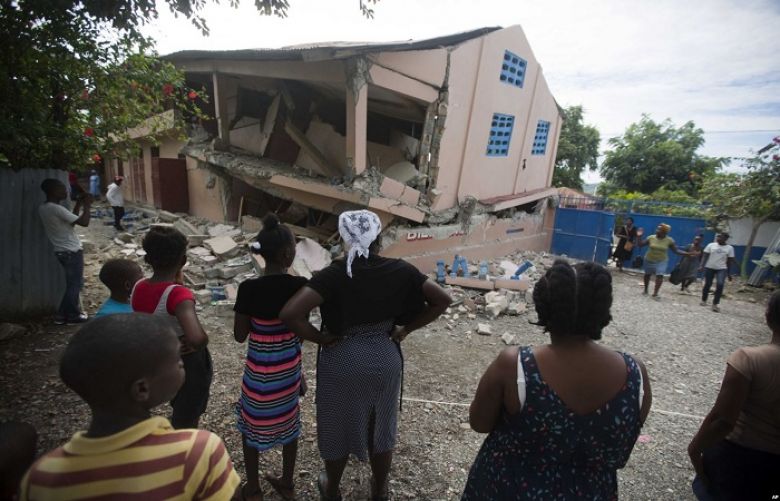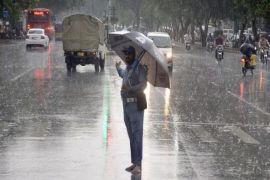At a sold-out Haitian Ladies Brunch, held at their nation's embassy in Washington Sunday, conversations among professional women of the diaspora included concerns about loved ones in the Caribbean country. An earthquake the day before brought back memories of the 2010 disaster.
The annual networking event, now in its 13th year, provides an opportunity for professional women and students in the U.S. diaspora to meet one another and exchange advice and ideas about how to help Haiti.
Hours after a 5.9 magnitude earthquake struck the country's northwest Saturday night and reverberated throughout the territory, some had not yet spoken with family members in the most affected zones.
PBS News Hour's White House correspondent, Yamiche Alcindor, whose parents are Haitian, told VOA she has family in Port-de-Paix, where the earthquake hit hardest, but had not yet spoken with them to see how they were doing.
On the embassy's iconic winding staircase, Miami Herald journalist Jacqueline Charles, who tweeted her excitement at attending the Haitian Ladies Brunch, was busy tweeting the latest earthquake developments to her followers.
Meanwhile, as women enjoyed Haitian dishes, hors d'oeuvres and drinks, they expressed concern about what is going on in their native country.
"It seems every time we hope to get back on our feet something like this happens. It's very disruptive to our hope, our aspirations to do better," Jessie Belizaire, a first-time attendee at the brunch, told VOA.
Clunie Jacques, also a first-time attendee, said she learned of the latest earthquake on WhatsApp while attending the Haitian Ladies Networking event on Saturday Night.
"We're trying to fix the country and the country is breaking apart; it made me so emotional and sad that these things are still happening to Haiti," she said. Jacques told VOA she has friends in Port-de-Paix but had not been able to speak to them, and was checking WhatsApp periodically for the latest earthquake news.
Moment of silence
In his remarks to the more than 350 women who attended the embassy's most popular annual event, Ambassador Paul Altidor held a moment of silence in honor of Saturday's earthquake victims.
"Unfortunately, something happened in Haiti again yesterday," Ambassador Altidor informed the audience. "And -- we're not going to dwell on it -- as a country as a community as a people, we're going to stand and do what we need to do. But we do actually want to take one moment of silence for those in Haiti who are suffering from yet another earthquake that took place in Haiti yesterday.
Altidor acknowledged he had thought about canceling the Haitian Ladies Brunch after initially learning about the quake, but then decided against it.
How to help
For members of the diaspora seeking to help quake victims, Ambassador Altidor advised reaching out to local officials and organizations already working in the cities that were hardest hit, rather than embarking on their own initiatives.
Haitian President Jovenel Moise echoed the same advice in a speech late Sunday, shortly after visiting the most affected cities.
"I'm asking everyone who wants to help, all the philanthropists out there...to reach out to the National Civil Protection Service, who I have asked to coordinate the effort," Moise said, adding that he would ask them to set up a special phone line to field those calls.
Latest death toll
According to the latest report published early Monday by the Civil Protection Service, the current death toll stands at 15, with 333 injuries.
Haiti is the Western Hemisphere's poorest country. It has never fully recovered from the 7.1-magnitude earthquake in 2010 that killed more than 200,000 people and left 1 million people homeless.







